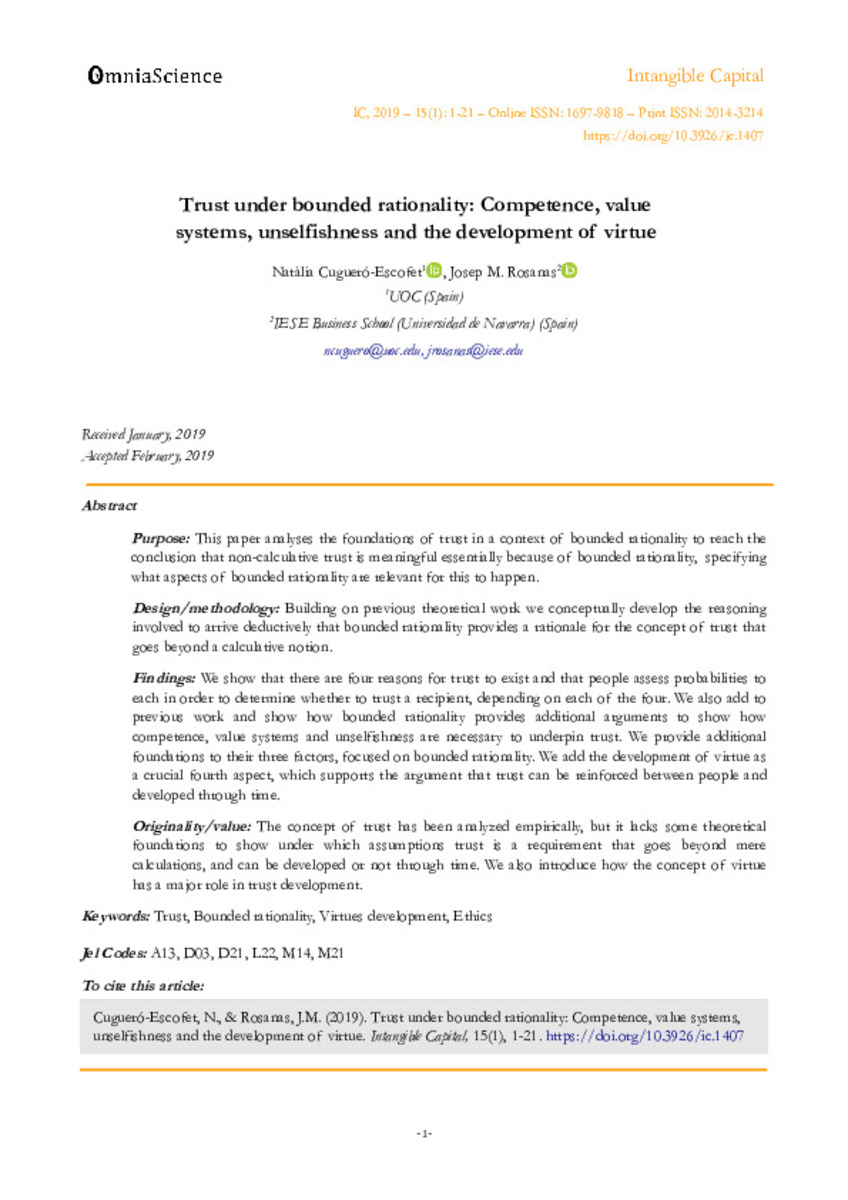Trust under bounded rationality: Competence, value systems, unselfishness and the development of virtue
Palabras clave :
Trust
Bounded rationality
Virtues development
Ethics
Fecha de publicación :
2019
Editorial :
Omnia Publisher SL
Nota:
Article's contents are provided on an Attribution-Non Commercial 4.0 Creative commons International License. Readers are allowed to
copy, distribute and communicate article's contents, provided the author's and Intangible Capital's names are included. It must not be
used for commercial purposes. To see the complete license contents, please visit https://creativecommons.org/licenses/by-nc/4.0/.
Cita:
Cugueró-Escofet, N. (Natàlia); Rosanas-Martí, J.M. (Josep Maria). "Trust under bounded rationality: Competence, value systems, unselfishness and the development of virtue". Intangible Capital. 15 (1), 2019, 1 - 21
Aparece en las colecciones:
Estadísticas e impacto
0 citas en

0 citas en

Los ítems de Dadun están protegidos por copyright, con todos los derechos reservados, a menos que se indique lo contrario.








